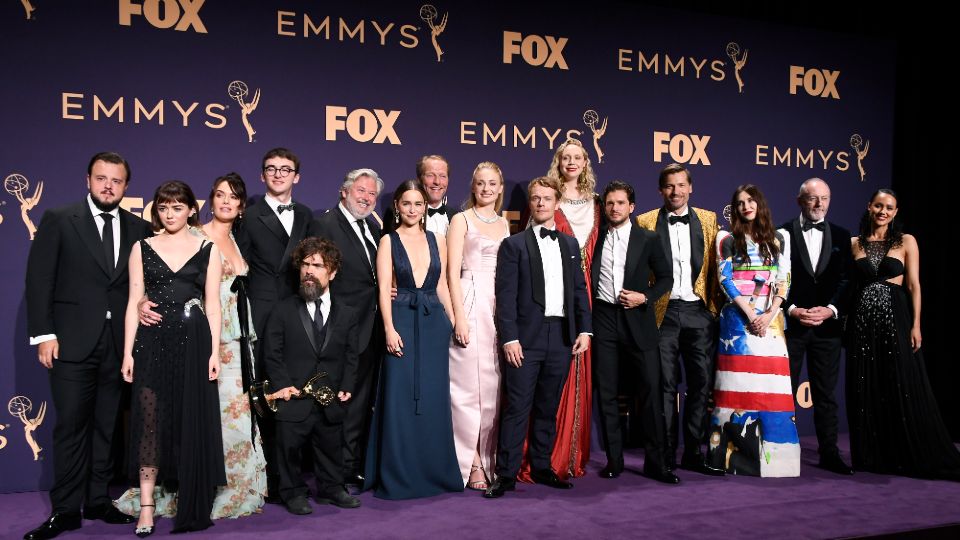Jason Momoa does not like being asked about his 'GoT' character's rape scene
 HBO
HBO
Interviewing actors is not a job for the faint of heart. Sometimes it’s a long string of canned, PR-workshopped answers that fail to illuminate anything of interest. Other times, it’s outright adversarial. Aquaman and Game of Thrones star Jason Momoa’s latest chat with the New York Times falls uncomfortably into the latter category. Momoa, it seems, took issue with being asked about his GoT role — particularly about a violent scene he filmed in the pilot episode with co-star Emilia Clarke.
Get ready to cringe.
In a wide-ranging conversation that covered everything from Momoa’s work with Marvel to his latest Netflix thriller Sweet Girl, set in the world of big pharma, journalist David Marchese began to dig into the roots of Momoa’s career asking if it was his GoT role as Khal Drogo that truly launched him towards stardom. It seems that this was when things began to sour just slightly.
Momoa believes that his career was on a serious upward trajectory even before he played the Dothraki leader. “People were like, ‘Oh, we love Jason,’ but still didn’t know what to do with me. Then Zack Snyder called and he wanted me to audition for Batman, and I was like, ‘Nah.’ I couldn’t see myself getting Batman, so I almost said no to the whole thing. But I did the audition, and I played it like if Batman was this vagrant, kind of a hustler. I knew they weren’t going to cast me, so I thought I might as well just do something fun,” said Momoa. That audition, he explains, is what got him his Aquaman role, it’s just that it took four more years to make the movie. So in his view, his career was already accelerating pre-GoT.
Perhaps not picking up on the fact that Momoa had a strong preference for talking about upcoming projects as opposed to his past work, Marchese pushed ahead with a follow-up Drogo question.
“I don’t know how much you followed any of this,” he said, “but Game of Thrones inspired a lot of discussion about its depiction of scenes of sexual assault and its treatment of women generally. Do you think differently today about those scenes?” asked Marchese. “Would you do one now? Do you have any regrets? Those types of scenes can seem as if they belong to an older cultural moment.”
This is where it gets awkward.
“Well,” answered Momoa, “it was important to depict Drogo and his style. You’re playing someone that’s like Genghis Khan. It was a really, really, really hard thing to do. But my job was to play something like that, and it’s not a nice thing, and it’s what that character was. It’s not my job to go, ‘Would I not do it?’ I’ve never really been questioned about ‘Do you regret playing a role?’ We’ll put it this way: I already did it. Not doing it again.”
The palpably terse reply was followed by Marchese changing the subject, attempting to turn the conversation towards other projects. Painfully (we assume) aware that the interview was over before it was really over, Marchese said “OK, I guess we’re done. Thanks for taking the time to talk with me."
It was here where Momoa expressed his displeasure with how the interview had gone.
“I wanted to bring something up that left a bad feeling in my stomach,” he told Marchese. “When you brought up Game of Thrones, you brought up stuff about what’s happening with my character and would I do it again. I was bummed when you asked me that. It just feels icky — putting it upon me to remove something. As if an actor even had the choice to do that. We’re not really allowed to do anything. There are producers, there are writers, there are directors, and you don’t get to come in and be like, ‘I’m not going to do that because this isn’t kosher right now and not right in the political climate.’ That never happens. So it’s a question that feels icky. I just wanted you to know that.”
Some on Twitter came to Momoa's defense:
The thing is, actors are put in positions where they don’t want to do things all the time — and some of them make the decision to say no — whether that’s a love scene, working with a certain co-star, or a plot point they find problematic. (Albeit those with higher profiles have more power to do so.) Since her time on GoT, Emilia Clarke has taken a stance against doing nude scenes. She did mention, however, that Momoa “took care of her” in those uncomfortable situations.
“It’s only now that I realize how fortunate I was with that,” Clarke told Dax Shepard on a 2019 episode of his podcast. “Jason had experience; he was an experienced actor who had done a bunch of stuff before coming on to this. He was like ‘Sweetie, this is how it’s meant to be, and this is how it’s not meant to be, and I’m gonna make sure that that’s the f--ing case.’”
Of course, the climate around issues like the scene Momoa is so touchy about have moved (thank god) in a more progressive direction. It's unlikely that anyone would have expected him to raise an objection to filming the scene back when he did, but we also welcome it when actors are able to discuss their own work through the lens we currently look at film and TV through. That kind of reflection, after all, is how both actors and audiences evolve.
BEFORE YOU GO: HBO is developing three new Game of Thrones spinoffs


















